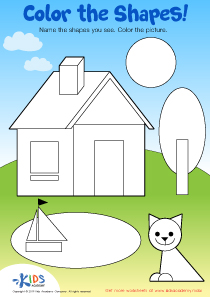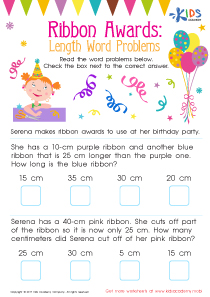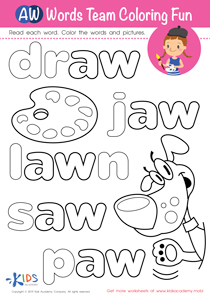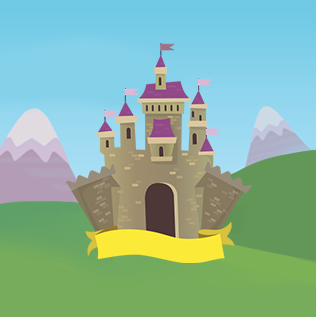Logic and Early Math Lessons | Early Logic and Geometry for Ages 4-5
24 results
Unlock the world of shapes and patterns with our captivating Early Logic and Geometry lessons designed specifically for children aged 4-5! Through a blend of interactive worksheets, engaging educational videos, and fun assessment quizzes, our program introduces young learners to the fascinating concepts of basic geometry and logic in a way that’s easy to understand and exciting to explore. Watch as your child discovers how to recognize, compare, and create various shapes and patterns, setting a strong foundation for mathematical thinking and problem-solving skills. Join us on this adventure into Early Logic and Geometry, where learning feels like play!
In today's fast-paced and technology-driven world, laying a strong educational foundation for our children has become more important than ever. Among the core subjects that form this foundation, Early Logic and Geometry for Ages 4-5 stand out as critical pillars in the early developmental stages of children. These lessons, when introduced through interactive worksheets, educational videos, and assessment quizzes, can significantly enhance a child's cognitive and problem-solving skills. Here, we delve into how these lessons are not just educational but are instrumental in shaping the minds of young learners.
Early Logic and Geometry for Ages 4-5 encompass fundamental concepts that are essential for young minds to grasp. These subjects are not just about shapes and patterns; they are about understanding the world around us. By engaging with interactive worksheets, children are encouraged to think critically and solve problems. These activities are designed to be age-appropriate, ensuring that children are not overwhelmed but are challenged just enough to spark their curiosity and encourage exploration.
The introduction of educational videos into the curriculum serves as a dynamic supplement to traditional learning methods. These videos are crafted to capture the imagination of young learners, making complex concepts more understandable and engaging. Through storytelling and visual aids, children are able to see the practical applications of Early Logic and Geometry in their everyday lives. This not only helps in retaining their attention but also in fostering a love for learning.
Assessment quizzes play a crucial role in the learning process by providing immediate feedback. These quizzes are not about grading the child but about understanding their grasp of the subject. They help educators and parents identify areas where the child might need more support, allowing for a tailored learning experience. This personalized approach ensures that no child is left behind, and each one progresses at their own pace.
Moreover, Early Logic and Geometry for Ages 4-5 lay the groundwork for more advanced mathematical concepts. By mastering these early lessons, children develop a strong numerical foundation, which is crucial as they advance in their academic journey. These subjects also enhance spatial reasoning, a skill that is vital not just in mathematics but in everyday decision making.
Furthermore, these lessons foster critical thinking and problem-solving skills. Through interactive and engaging activities, children learn to approach problems systematically, analyze possible solutions, and make logical decisions. These are invaluable life skills that will benefit them beyond the classroom.
In conclusion, Early Logic and Geometry for Ages 4-5, when delivered through interactive worksheets, educational videos, and assessment quizzes, provide a comprehensive and enriching learning experience for young children. These lessons are not just about numbers and shapes; they are about nurturing curious, problem-solving minds that are prepared for the challenges of the future. By investing in such foundational education, we are giving our children the tools they need to succeed in their studies and in life.



















